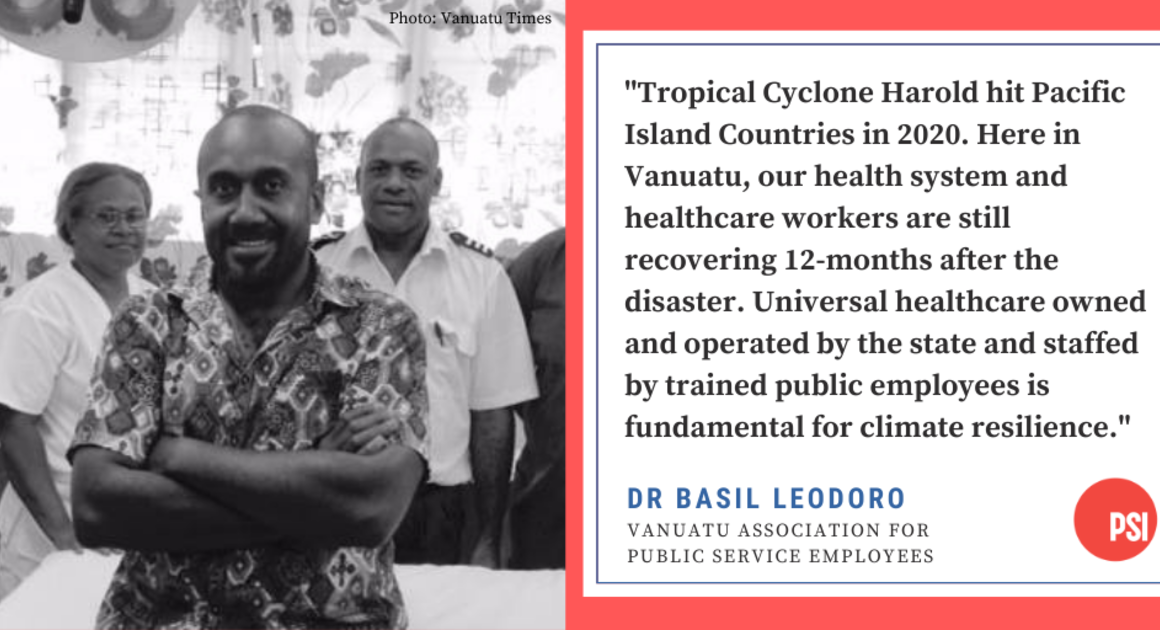#RCM72 #Covid19 #Health #ClimateCrisis PSI brings the voice of workers to the WHO Western Pacific

The seventy-second session of the World Health Organization (WHO) Regional Committee Meeting for the Western Pacific began on Monday 25 October 2021. Held in Himeji, Japan, the meeting was attended virtually and in-person by government representatives from member states across the region, with interventions from Civil Society Organizations following each session.
PSI played an active role in the meeting, intervening on issues of importance to affiliates and providing opportunities for health workers to voice concerns and demands on issues facing them, including the Covid-19 pandemic and climate change. As the global union with consultative status at the WHO, PSI seeks to ensure the voices of health and social care workers inform WHO policy and practice.
Covid-19
For PSI’s intervention on Covid-19, NSW Nurses & Midwifes Association Assistant General Secretary, Shaye Candish, delivered a video statement that highlighted the importance of quality public health systems and called for an end to decades of privatization and underfunding.
Shaye noted the rise in burnout among health workers, calling for strategies to address anxiety and post-traumatic stress as a result of dangerous working conditions, and stressed the urgent need for safe nurse-to-patient ratios. By working with unions, governments in the region must also improve pay, conditions, health and safety, and job security for health workers to reverse the global shortage that has been exacerbated by the pandemic.
Finally, Shaye called for an immediate TRIPS Waiver, pointing out that the failure to vaccinate the world risks breeding new, more powerful strains of the virus and drawing attention to the stark vaccine inequality in the Asia Pacific region.
Video
NSWNMA's statement to the 72 WHO Regional Committee for Western Pacific Agenda item 10
Climate and Health
Dr Basil Leodoro, President of Vanuatu Association for Public Service Employees, delivered a statement for the session on climate change and health, explaining the impact of rising sea levels and extreme weather events on Pacific Island countries and the effect this has on health outcomes in the region.
This included the Category 5 storm Tropical Cyclone Harold that hit Vanuatu, Fiji, Tonga and Solomon Islands in 2020, destroying tens of thousands of homes and crops and resulting in 27 lives lost. This put further strain on under resourced public health system and saw health workers scrambling to meet health needs of impacted communities. Twelve months after the disaster, the health system in Vanuatu is still recovering.
In his intervention, Basil argued that too often the proposed solutions to the impacts of the climate crisis focus on market-based and privatised service provision. Such an approach is ad-hoc, high-risk, does not create decent work and increases the cost of essential services for citizens.
Video
Dr. Basil Leodoro, President of Vanuatu Association for Public Service Employees speaks at #RCM72 on climate & health. He stresses the need for commitments to expand quality public health & a global system designed for public good, not profits. @WHOWPRO
Dr. Basil Leodoro's Statement at @WHOWPRO #RCM72 on climate & health
Written Statements on Primary Health Care and Noncommunicable Diseases & Ageing
Alongside video statements from affiliates, PSI provided written statements for Agenda Items 9 (Panel discussion on primary health care) and 14.2 (Thematic priority: Noncommunicable diseases and ageing). Both statements reiterate PSI's commitment to healthcare as a universal public service, opposing privatisation and stressing the need for unionised workplaces where care and treatment is put before profit.
